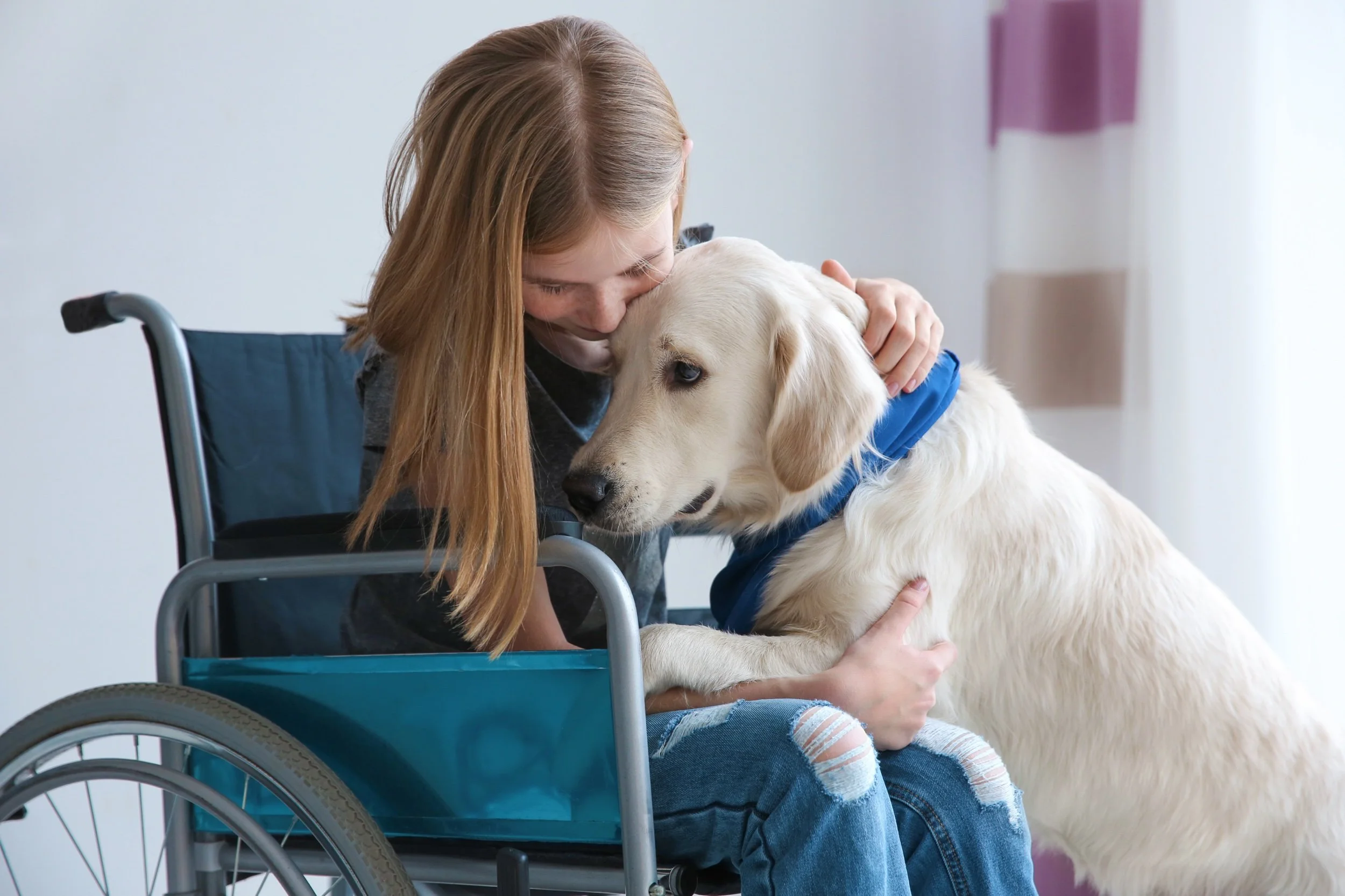Living With Prader–Willi Syndrome: Unique Challenges Require Unique Solutions
Prader–Willi Syndrome (PWS) presents complex, lifelong challenges: hyperphagia (insatiable appetite and food seeking), emotional dysregulation, anxiety, and sometimes physical or cognitive limitations. For many families, managing food safety, emotional outbursts, and independence can feel overwhelming.
A Prader–Willi service dog is more than a companion — it’s a trained partner who can help manage food-related behaviors, provide calming pressure during emotional storms, and add security in day-to-day life.
At Canine Evolutions, Bart de Gols and his team leverage cutting-edge neuroscience and decades of canine behavior expertise to craft dogs that don’t just follow commands — they think, adapt, and help safeguard families living with PWS.
What a Prader–Willi Service Dog Can Do
Every PWS case is different, but common tasks include:
Food-Seeking Interruption — Gently block access to food, alert caregivers when the individual is attempting to access food unsafely.
Environmental Monitoring — Indicate when a pantry, refrigerator, or food storage area has been opened.
Deep Pressure & Grounding — Apply calming weight or lean during meltdowns or anxiety attacks.
Routine Support — Cue transitions between activities, guide through busy public places calmly.
Wandering Prevention — Interrupt attempts to sneak away toward food sources.
Emotional Regulation Aid — Provide tactile grounding and companionship during frustration or change.
Dogs are trained to match the exact needs and abilities of each person with PWS and their family system.
Our Training Approach
Neuroscience-Guided: We train dogs to respond to subtle body cues, scent changes, and movement patterns linked to hyperphagia and emotional dysregulation.
Family-Centered: Because PWS impacts the entire household, we teach parents, siblings, and caregivers how to work with the dog safely and effectively.
Behavioral Reliability: Dogs are proofed in real-life situations — mealtime, grocery stores, social outings — to ensure consistent, calm responses.
Relationship-Based: A cooperative bond between handler/family and dog is the foundation of lasting success.
Program Roadmap
Initial Evaluation — Understand the individual’s behaviors, triggers, and daily routines. Evaluate current dog suitability or select a candidate.
Foundation Work — Engagement, impulse control, and safe relationship-building with the person and family.
Specialized Task Training — Hyperphagia interruption, alerting, grounding, and safety behaviors.
Public Access & Proofing — Grocery stores, restaurants, parks — the dog learns to stay calm and reliable.
Family Coaching — Everyone learns how to maintain training and use the dog’s skills safely.
Most programs run 12–18 months with lifetime support available after graduation.
Investment & Tax Advantages
Training a PWS service dog is a specialized, high-impact investment. Programs at Canine Evolutions typically range from $30,000 to $60,000+ depending on complexity and family goals. According to IRS Publication 502, service dogs and their training are generally tax deductible when prescribed to assist with a diagnosed disability.
Why Families Choose Canine Evolutions
Expertise With Rare & Complex Conditions: We’ve successfully trained dogs for non-standard, high-need disabilities where off-the-shelf training fails.
Family Integration: We prepare not just the dog but also caregivers, parents, and siblings for long-term success.
Neuroscience & Behavior Science: Our approach isn’t trial and error — it’s rooted in decades of study in learning, motivation, and canine cognition.
Lifetime Support: We’re here as your child (or adult with PWS) grows and needs evolve.
Take the First Step
Living with Prader–Willi Syndrome is challenging — but you don’t have to do it alone. A carefully trained service dog can add safety, predictability, and emotional relief for the entire family.
